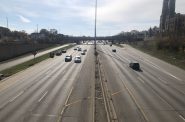Paris Plans to be ‘100% Cyclable’
All the city news you can use.
Every day at The Overhead Wire we sort through over 1,500 news items about cities and share the best ones with our email list. At the end of the week, we take some of the most popular stories and share them with Urban Milwaukee readers. They are national (or international) links, sometimes entertaining and sometimes absurd, but hopefully useful.
Indoor methane more prevalent than previously known: Research comparing data from before and during the pandemic found that tiny methane leaks from natural gas in homes make up a larger proportion of city emissions than previously realized. Methane is particularly bad for the climate, making up 20% of emissions. The finding is fueling calls for banning natural gas and moving towards electrification sooner rather than later. (Daniel Grossman | Yale Climate Connections)
California NIMBYs running wild: Last Friday the Port of Los Angeles came to a standstill because of a zoning regulation that had nothing to do with safety. Turns out containers are only allowed to be stacked two high as a concession to local neighborhoods. An emergency declaration has changed the number to five, but not before jokes about housing and containers being limited to ground level in California were shared. (Virginia Postrel | Washington Post)
Low rise buildings, not skyscrapers key to climate: By 2050, an additional 2.5 billion people will be living in cities around the world. To accommodate this population growth sustainably, researchers have found that densely packed low rise urban design is much more effective than building skyscrapers when embedded carbon and lifecycle costs are considered. As such, the researchers say that cities such as Paris are better for the environment generally than a New York City. (Ruth Saint and Francesco Pomponi | The Conversation)
The subversive urbanism of Pixar movies: If you’ve watched Pixar movies you might have noticed how they have a sincere understanding of the urban condition. Whether it’s a town that’s been bypassed by the Interstate or a holdout home surrounded by development pressure or even a scary look at the future of our planet and the impacts of personal mobility vehicles, the movies show us the places we knew and lost, and the places that could be if our imaginations are big enough. (Justin Wolf | ArchDaily)
Quote of the Week
But the most compelling case for rent regulation goes beyond the research and the statistics. It is that continuity and stability are vital elements of any neighborhood’s social health. They are weapons against the alienation and loneliness that prevail in any community in which nothing, not personal relationships nor physical familiarity, ever seems permanent.
–Alan Ehrenhalt in Governing discussing why we might rethink conventional wisdom on rent control.
This week on the podcast, we’re joined by Mary Pat McGuire, associate professor of landscape architecture at the University of Illinois to talk about depaving cities.
Want more links to read? Visit The Overhead Wire and signup.
Urban Reads
-
How Traffic Noise Impacts Children’s Brains
 Jul 1st, 2024 by Jeff Wood
Jul 1st, 2024 by Jeff Wood
-
Number of Super Commuters is Rising
 Jun 22nd, 2024 by Jeff Wood
Jun 22nd, 2024 by Jeff Wood
-
Why Has the Walkable City Been Villainized?
 Jun 9th, 2024 by Jeff Wood
Jun 9th, 2024 by Jeff Wood






















